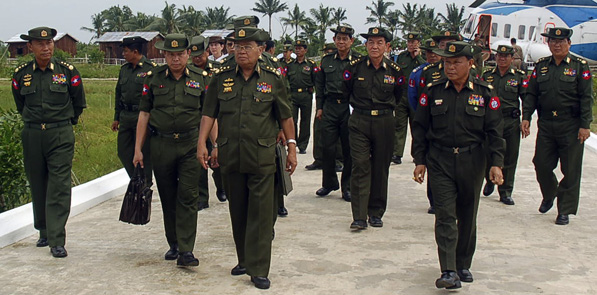Unless all countries concerned are somehow able to reach a consensus on where Burma should be heading after the election, however, continuing division will stand in the way of the sort of decisive action that will be needed to move things forward.
The Burmese political scene, in short, may be similar to a living museum, in which military domination, a hybrid parliamentary “talking shop,” thuggish political violence, kleptocracy, contained Balkanization, gulags and committed struggle by principled dissidents will exist and operate in multiple levels of conflict. Under such circumstances, the possibility of a collapse of Burma’s polity due to implosion or explosion can’t be ruled out. Of course, it is not desirable, as the country will descend into a bloodbath and anarchy.
Ultimately, however, Burma’s future direction will remain, in the near term at least, largely in the hands of its current rulers. But if the generals believe that a USDP “victory” will give them a mandate to stifle real change indefinitely, they are seriously mistaken. Just as the past cannot be erased, the future is also not to be denied. And the future belongs to those who learn from their mistakes and adapt accordingly—not those who consider themselves permanently entitled to dictate the fate of an entire nation.
Min Zin is a Burmese journalist living in exile.

